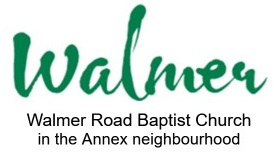Do the Works
Elaine Poproski Download: Audio
Click here to read the sermon
Sermon Notes:
At the beginning of the sermon, reference is made to The Leadership Project. This is an initiative of The Missional Network. You can find out more here.
To dig deeper into some of what was talked about in this sermon, check out the book by Mark Lau Branson and Alan J. Roxburgh. Leadership, God’s Agency, & Disruptions: Confronting Modernity’s Wager. (Eugene, Oregon: Cascade Books, 2020).
Scripture: John 14:8-17, 25-27
Philip said to him, “Lord, show us the Father, and we will be satisfied.” Jesus said to him, “Have I been with you all this time, Philip, and you still do not know me?” Read more…
Looking to Sunday
by Elaine Poproski
Sunday is Pentecost. It’s that day in the Christian calendar when we remember the arrival of the Holy Spirit like the sound of a violent wind and like tongues of fire. It’s a noisy, dramatic encounter with immediate effects. You can read the story in Acts 2.
The disciples upon whom the Spirit landed spoke many different languages. They spoke all the languages of all the people who had traveled to Jerusalem from as far away as Rome to the west, the Persian Gulf to the east, the Black Sea to the north and the Red Sea to the south. Jerusalem was filled with people who had traveled to celebrate Shavuot – the Feast of Weeks – a harvest festival that had also come to represent the renewal of the God’s covenant with Noah and possibly also God’s gift of the Law at Mount Sinai. All these people heard the disciples speaking in their own languages. And then Peter – bumbling, quick-tempered, always-missing-the-point Peter – started to speak, and it was clear that the Holy Spirit had done more than just impart a gift for languages.
In John 14, Jesus told the disciples that those who believe in him will do greater works than he did. And then he told them that when he was gone, the Holy Spirit would come. Jesus didn’t specifically link these two ideas – the greater works and the coming of the Holy Spirit – but when considered in retrospect, in light of the events of Acts 2, it’s hard to imagine that these ideas aren’t linked. What better example of the ‘greater works’ than the disciples suddenly, miraculously speaking all the languages of all the people? What better example than Peter’s powerfully persuasive sermon?
And yet, the name Jesus used for the Holy Spirit in John 14 was Paraclete. It’s a Greek word that is used to mean comfort, encouragement, and exhortation. It carries the added sense of a helper and an advocate when it’s used as a name. What it doesn’t include is any sense of powerful, showy, miraculous works. There’s no real drama in the word; it feels more like a summer breeze by a babbling brook than it does a violent wind and tongues of fire. Given this gentler idea of the Spirit, what might Jesus have meant when he said that those who believe in him will do greater works than he did?
As you prepare for Sunday, it might be helpful to spend some time considering your assumptions about the Holy Spirit – who the Spirit is, what the Spirit does, and how the Spirit does what it does. It might also be helpful to spend some time considering which representation of the Holy Spirit you tend to prefer – the wind and the fire Spirit or the Comforter/Helper Spirit. Do you have room in your understanding of and relationship with the Spirit for both?

